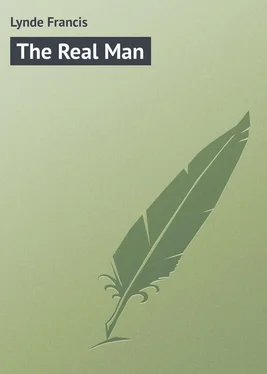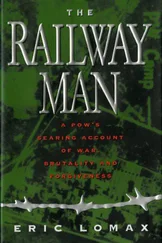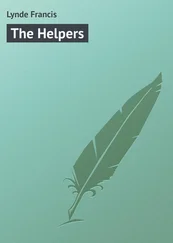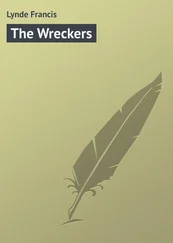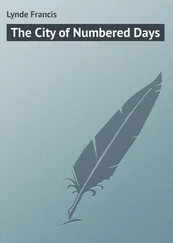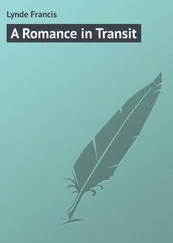Francis Lynde - The Real Man
Здесь есть возможность читать онлайн «Francis Lynde - The Real Man» — ознакомительный отрывок электронной книги совершенно бесплатно, а после прочтения отрывка купить полную версию. В некоторых случаях можно слушать аудио, скачать через торрент в формате fb2 и присутствует краткое содержание. Жанр: foreign_prose, на английском языке. Описание произведения, (предисловие) а так же отзывы посетителей доступны на портале библиотеки ЛибКат.
- Название:The Real Man
- Автор:
- Жанр:
- Год:неизвестен
- ISBN:нет данных
- Рейтинг книги:4 / 5. Голосов: 1
-
Избранное:Добавить в избранное
- Отзывы:
-
Ваша оценка:
- 80
- 1
- 2
- 3
- 4
- 5
The Real Man: краткое содержание, описание и аннотация
Предлагаем к чтению аннотацию, описание, краткое содержание или предисловие (зависит от того, что написал сам автор книги «The Real Man»). Если вы не нашли необходимую информацию о книге — напишите в комментариях, мы постараемся отыскать её.
The Real Man — читать онлайн ознакомительный отрывок
Ниже представлен текст книги, разбитый по страницам. Система сохранения места последней прочитанной страницы, позволяет с удобством читать онлайн бесплатно книгу «The Real Man», без необходимости каждый раз заново искать на чём Вы остановились. Поставьте закладку, и сможете в любой момент перейти на страницу, на которой закончили чтение.
Интервал:
Закладка:
Beyond the quenching of his hunger and the stuffing of his pockets with two more of the sad sandwiches, he went back to his box car, knowing that, in the nature of things, his flight was as yet only fairly begun. His train, or some train in which his car was a unit, was just pulling out, and he was barely in time to slide the door and scramble in. Once inside, he made haste to close the opening before the train should emerge from the shelter of its mate on the next track. But before he could brace himself for the shove, a hand came down from the car roof, a brakeman's coupling-stick was thrust into the riding-rail of the door, and the closing operation was effectively blocked.
Smith stood back and waited for a head to follow the hand. It came presently; the bare, tousled head of a young brakeman who had taken off his cap and was lying on his stomach on the car roof to look under the eaves into the interior. Smith made a quick spring and caught the hanging head in the crook of his elbow. "You're gone," he remarked to the inverted face crushed in the vise of forearm and biceps. "If you turn loose, you'll break your back as you come over, and if you don't turn loose, I can pull your head off."
"Leggo of me!" gasped the poor prisoner, drumming with his toes on the roof. "Wha – whadda you want with my head? You can't do nothin' with it when you get it!"
"I have got it," said Smith, showing his teeth. "By and by, when we get safely out of town, I'm going to jump up and bite you."
The brakeman tried to cry out that he was slipping; that the fall would kill him. Smith felt him coming and shifted his hold just in time to make the fall an assisted somersault, landing the man clumsily, but safely, inside of the car. The trigging stick had been lost in the scuffle, and Smith's first care was to slide the door.
"Say; what kind of a 'bo are you, anyway?" gasped the railroad man, flattening himself against the side of the car and struggling to regain his suddenly lost prestige; the time-honored authority of the trainman over the ride-stealer. "Don't you know you might 'a' killed me, pullin' me off'm the roof that way?"
"I can do it yet, if you feel that you've missed anything that was rightfully coming to you," Smith laughed. Then: "Do you happen to have a pipe and a bit of tobacco in your clothes?"
"My gosh!" said the brakeman, "I like your nerve!" Nevertheless, he rummaged in his pocket and handed over a corn-cob pipe and a sack of tobacco. "Maybe you'll want a match, too."
"No, thanks; I have one."
Smith filled the pipe, lighted it, and returned the tobacco. The nickel mixture was not quite like the Turkish blend in the humidor jar on the Kincaid Terrace mantel, but it sufficed. At the pipe-puffing the brakeman looked him over curiously.
"Say; you're no Weary Willie," he commented gruffly; "you're wearin' too good clothes. What's your lay?"
More and more Smith could feel the shacklings of the reputable yesterdays slipping from him. Civilization has taken its time ambling down the centuries, but the short cuts to the primitive are neither hard to find nor long to traverse.
"My 'lay' just now is to get a free ride on this railroad," he said. "How far is this 'empty' going?"
"To St. Louis," was the reply, extorted by the very matter-of-fact calmness of the question. "But you're not goin' to St. Louis in it – not by a jugful. You're goin' to hop off at the first stop we make."
"Am I? Wait until I have finished my smoke. Then we'll open the door and scrap for it; the best man to stay in the car, and the other to take a chance turning handsprings along the right of way. Does that appeal to you?"
"No, by jacks! You bet your life it don't!"
"All right; what's the other answer?"
If the brakeman knew any other answer he did not suggest it. A few miles farther along, the train slowed for a stop. The brakeman felt his twisted neck tenderly and said: "If you'll tell me that you ain't runnin' away from some sheriff 'r other…"
"Do I look it?"
"I'm dogged if I know what you do look like – champeen middle-weight, maybe. Lemme open that door."
Smith took a final whiff and returned the pipe. "Suppose I say that I'm broke and haven't had a chance to pawn my watch," he suggested. "How does that strike you?"
The trainman slid the door open a foot or so as the train ground and jangled to a stand at the grade crossing with another railroad.
"I'll think about it," he growled. "You pulled me off'm the roof; but you kep' me from breakin' my back, and you've smoked my pipe. My run ends at Terre Haute."
"Thanks," said Smith; and at that the tousle-headed young fellow dropped off and disappeared in the direction of the caboose.
Smith closed the door and hooked it with his wire, and the train jogged on over the crossing. Hour after hour wore away and nothing happened. By the measured click of the rail joints under the wheels it was evident that the freight was a slow one, and there were many halts and side-trackings. At noon Smith ate one of the pocketed sandwiches. The ham was oversalted, and before long he began to be consumed with thirst. He stood it until it became a keen torture, and then he found the bit of wire again and tried to pick the hasp-lock, meaning to take advantage of the next stop for a thirst-quenching dash.
For some reason the wire refused to work, and he could not make it free the hasp. After many futile attempts he whittled another peep-hole, angling it so that it pointed toward the puzzling door hook. Then he saw what had been done. Some one – the somersaulting brakeman, no doubt – had basely inserted a wooden peg in the staple in place of the hook and the empty box car was now a prison-van.
Confronting the water famine, Smith drew again upon the elemental resources and braced himself to endure. When night came the slow train was still jogging along westward somewhere in Illinois, and the box-car prisoner was so thirsty that he did not dare to eat the meat in the remaining sandwich; could eat the bread only in tiny morsels, chewed long and patiently. Still he would not make the outcry that the tricky brakeman had doubtless counted upon; the noise that would bring help at any one of the numerous stops – and purchase relief at the price of an arrest for ride-stealing.
Grimly resolute, Smith made up his mind to hang on until morning. Every added mile was a mile gained in the flight from the gallows or the penitentiary, and the night's run would put him just that much farther beyond the zone of acute danger. Such determination fights and wins its own battle, and though he dreamed of lakes and rivers and cool-running brooks and plashing fountains the greater part of the night, he slept through it and awoke to find his car side-tracked in a St. Louis yard.
One glance through the whittled peep-hole showed him that the imprisoning peg was still in its staple, so now there was no alternative but the noise. A brawny switchman was passing, and he came and unhasped the door in response to Smith's shower of kicks upon it.
"Come down out o' that, ye scut! 'Tis the stone pile f'r the likes of yez in this State, and it's Michael Toomey that'll be runnin' ye in," remarked the brawny person, when the door had been opened.
"Wait," said Smith hoarsely. He had caught sight of a bucket of water with a dipper in it standing by the door of the switch shanty, and he jumped down and ran for it. With the terrible thirst assuaged, he wheeled and went back to the big switchman. "Now I'm ready to be run in," he said. "But first, you know, you've got to prove that you're the better man," and with that he whipped off his coat and squared himself for the battle.
It was joined at once, the big man being Irish and nothing loath. Also, it was short and sweet. Barring a healthy and as yet unsatisfied appetite, Smith was in the pink of condition, and the little trainer in the Lawrenceville Athletic Club had imparted the needful skill. In three swift rounds the big switchman was thrashed into a proper state of submission and hospitality, and again, being Irish, he bore no grudge.
Читать дальшеИнтервал:
Закладка:
Похожие книги на «The Real Man»
Представляем Вашему вниманию похожие книги на «The Real Man» списком для выбора. Мы отобрали схожую по названию и смыслу литературу в надежде предоставить читателям больше вариантов отыскать новые, интересные, ещё непрочитанные произведения.
Обсуждение, отзывы о книге «The Real Man» и просто собственные мнения читателей. Оставьте ваши комментарии, напишите, что Вы думаете о произведении, его смысле или главных героях. Укажите что конкретно понравилось, а что нет, и почему Вы так считаете.
